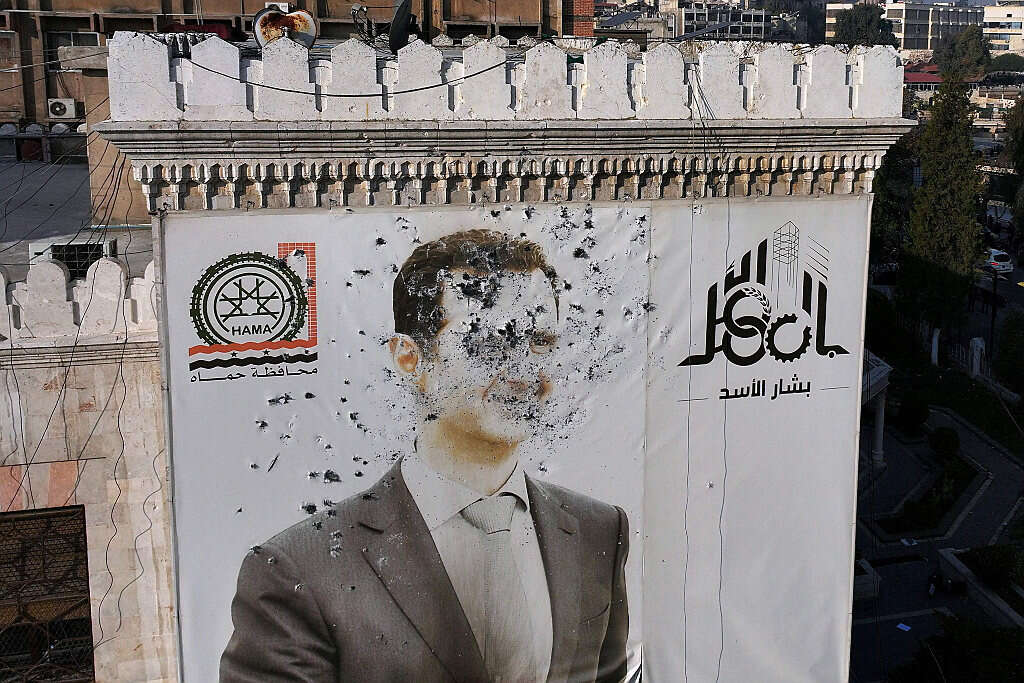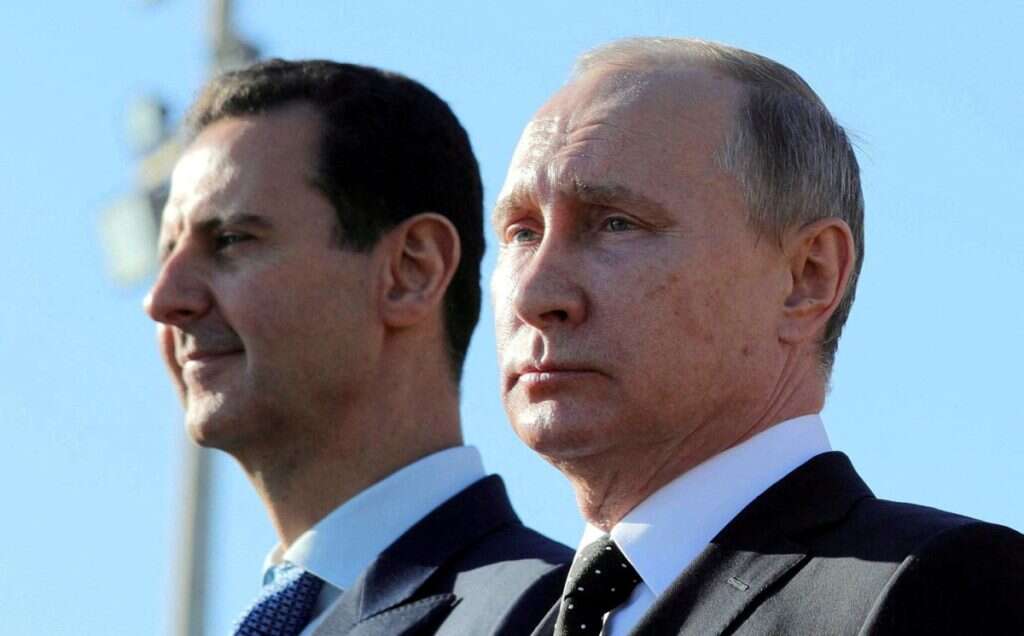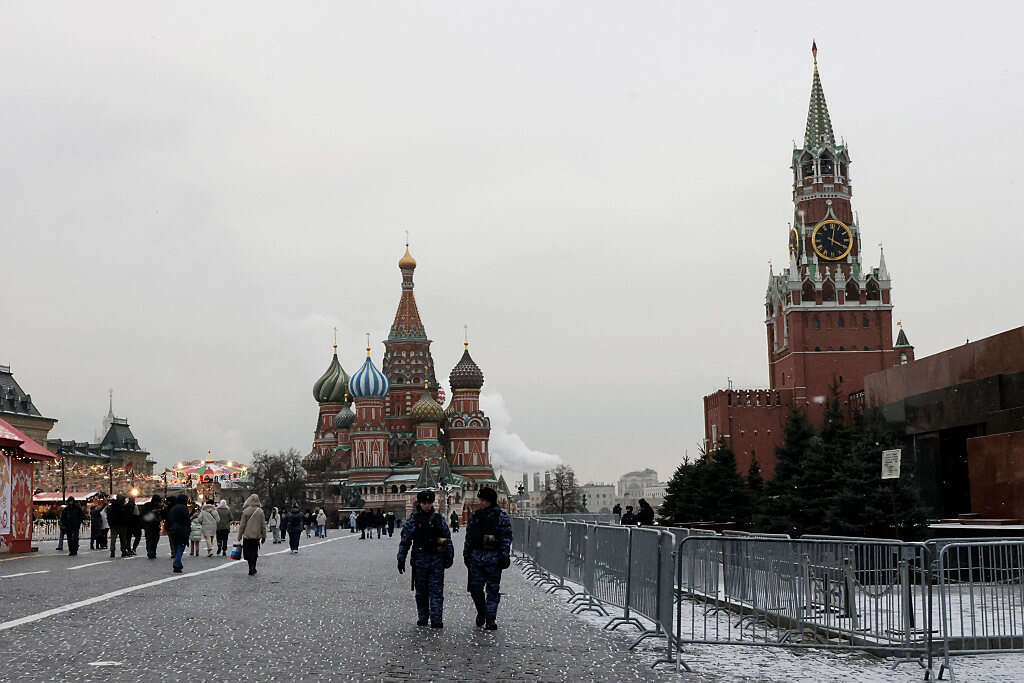As you read these lines, a tall, slightly hunched man stares through the expansive window of his apartment atop a skyscraper in Moscow City, examining the view with a melancholic gaze. Over the past two months, his eyes have grown accustomed to this vista, though they've never learned to draw comfort from it. The gray winter skies of the Russian capital weigh heavily on his somber thoughts, crushing the last remnants of hope. The river visible from the window is impressive, yet its persistent flow only triggers images he perhaps wanted to suppress, or perhaps burn into memory: the warm palace in Damascus, the line of generals under his command, and the country that was entirely his, his from home.
However, don't be too quick to pity Bashar Assad, the new resident of Moscow City. "Moammar Gadhafi would surely have been willing to trade places with him," a Moscow-based journalist tracking the Syrian ruler's new life in the Russian capital, speaking on condition of anonymty, said with with a smile. "Libya's ruler ended his worldly existence in the filth of sewage, blood, and excrement, with his former subjects abusing him at will. Assad, by contrast, is fortunate. Not only did he escape and survive thanks to Vladimir Putin's explicit order to extract him from the epicenter of his regime's collapse – he brought with him everything necessary for a comfortable, worry-free life: money, more money, and lots of money."
The journalist is convinced that Assad learned Gadhafi's lesson, and not just regarding the preference for escape over remaining in a falling country. Gadhafi understood the wisdom of acquiring properties and holdings in future sanctuary locations but failed to escape to them in time. Assad excelled in both aspects.
Russia's established media does not cover the Assad family's activities in Moscow. "It's a forbidden topic for reporting," the journaklist confirmed, guaranteeing that no journalist would dare violate the ban and publicly report where family members live, what they do, and what their daily routine looks like. "It's not impossible that whoever granted Assad asylum might one day decide it's worthwhile to bring the Syrian exile before approved reporters and put some message or other in his mouth, perhaps some touching story about how good life is in Russia," he assessed. "But for now, the Russian authorities have nothing to gain from such exposure, and if they have nothing to gain, why permit it? And there's much to lose: flaunting Assad could irritate Syria's new authorities, and then the Kremlin can forget about the dream of preserving Russian military bases in Syria."
In the crosshairs
The lack of publicity hasn't prevented Moscow's elite social circles from filling with rumors about the Assad family's experiences in their new location. Telegram channels, a rather effective tool in Russia's stifled media landscape, don't remain silent either, occasionally offering various pieces of information. Those who collect these pieces together, as the Moscow-based journalist does, can assemble a reliable picture of the deposed Syrian ruler's life.
The fortune Assad transferred to Russia well in advance constitutes the most crucial component of this existence. "It's quite simple: after you receive asylum, you're either a beggar subject to the host country's whims, or you're wealthy, and then you're the boss," the journalist analyzed. "You can purchase influence, tame law enforcement agencies and so forth – all this as long as you don't overdo it, follow the rules of the game, and don't develop too big an appetite. Bashar Assad will learn the rules of the game. In fact, he may have already learned them."

He isn't alone in thinking that Assad learned the Russian rules while still Syria's ruler, long before opposition units swept through the country and forced him to flee. D., who has had a lengthy career in Moscow real estate, recalled how about a decade ago he was involved in marketing properties in the Moscow City towers, which were under construction at the time: "Representatives of a 'senior Syrian figure' came to us interested in purchasing luxury apartments. They were very fond of the project and didn't think small. They bought several apartments under the names of Bashar Assad's relatives or under their controlled companies, and paid without haggling."
According to the Moscow-based journalist, the Assad family purchased no fewer than 19 different apartments throughout Moscow City over the years. The price of a regular apartment in the complex stood at about $2 million at the time, but Assad's representatives preferred higher-than-usual standard units. D. added that the purchases gave Assad's extended family members more than just an attractive investment channel – they constituted no less than an entry ticket to Moscow's elite club. Moscow City is a status symbol, and with the symbol come the associated privileges.
One of these involves participation in Moscow's rich social life, but the journalist assured that Assad has completely avoided it so far. "Perhaps the explanation lies in his wife Asma's serious illness, perhaps Assad himself is depressed after losing power, or maybe he's being directed by Russian security agencies not to go out unnecessarily due to assassination risk," he speculated. "I don't know the correct explanation, but one thing is undisputed: no one has seen Assad at launches, parties, or other glittering events that Moscow's elite so prides itself on."
Perhaps all of journalist's explanations are valid. Reports indicate that Asma Assad's leukemia has worsened, and she is hospitalized in complete isolation at one of Moscow's premier medical facilities to minimize infection risk. Additionally, it's questionable whether Assad has adjusted to his new status as a wealthy exile spending his days at parties. Finally, whether he likes it or not, personal security concerns follow him to the Russian capital.
The journalist reveals that his sources in Russian security services report that "half of the FSB is tasked with Assad's protection." Even if this is an exaggeration, it's clear the Russians take the security of Assad and his family members seriously. Who could threaten him in Moscow, thousands of miles from Syria? The same jihadists who fought against his regime, M.the Moscow-based journalist responded: "Don't forget that citizens of Central Asian countries that were once part of the USSR – Uzbeks and Tajiks, for example – can enter Russia without visas. Citizens of these countries fought for jihadist groups in Iraq and Syria, joined ISIS, underwent radical extremism, and some returned to their home countries. They could come to Moscow seeking revenge against the man who suppressed their jihadi comrades."
Hafez Assad Jr.
Moscow has indeed experienced Islamist terrorism. The most severe occurred less than a year ago, when a group of four gunmen opened fire at the Crocus City Hall entertainment center on the capital's outskirts. At least 144 people were killed and hundreds wounded in this attack. Authorities sought every way to link the act to Ukraine, but the perpetrators were Tajikistan residents, operatives of the Islamic State Khorasan Province terror organization.
In recent years, following the invasion of Ukraine, Moscow has also experienced targeted assassinations. Senior military officers and official propaganda service operatives were eliminated by assassins, likely directed from Ukraine. Each such case caused major embarrassment to the regime, M. notes, and exposed the surprising vulnerability of its loyalists, even in the heart of the Russian capital.

Thus, on December 17, when Assad was already in Moscow, unknown assassins killed General Igor Kirillov, commander of Russia's CBRN defense forces, using an explosive device hidden in an electric scooter's steering column. A similar scenario regarding Assad is absolutely unthinkable for the Kremlin, hence the Syrian exile, who already has so many enemies, has been assigned particularly stringent security.
What, then, remains for a ruler who lost his country and isn't eager to dive into Moscow's glamorous life? "Assad will venture into business, if not personally then through his children," the journalist predicts. "The foundation has already been built for him, based on cash flown from Syria several years ago. Those in the know swear that this is how $250 million in bills, weighing two tons in total, was transferred to Moscow in more than 20 flights!"
According to him., in May 2022, Assad's cousin Iyad Makhlouf established a real estate company in Moscow: "Only the blind wouldn't understand who the true owners of the company are and where its funds come from. If Asma recovers, she could join the operation – after all, her resume includes work at an investment firm. But the family's hopes rest on Hafez Assad, Bashar's eldest son (named after his father, the dynasty's founder), who completed his doctoral studies at Moscow State University last November. Thanks to his studies, he understands Russian culture, and is also known there. Though Hafez studied mathematics, he'll primarily need to count money."
The younger Assad's doctoral thesis was written in Russian and spanned 98 pages. Its acknowledgments section includes – alongside thanks to parents Bashar and Asma, sister Zein, and brother Karim – Hafez's gratitude to "Syria's martyrs, first and foremost the martyrs of the Syrian army."
Interestingly, Asma Assad and her parents attended Hafez's pinnacle university event, when he defended his thesis before a panel of distinguished professors, even though it occurred on the exact day rebels entered Aleppo, marking a crucial breakthrough in their path to Damascus. Not that anyone really worried about the outcome or thought family support would help the heir navigate between formulas. Asma and her parents came to celebrate, though unlike the previous ceremony where the proud mother celebrated Hafez's master's degree completion in June 2023, photos from this event weren't published.
"It's a common phenomenon in the 'Deposed Dictators Club' forming in Moscow: the children actually adapt faster to the new situation and find ways to optimally exploit their status as privileged exiles," the journaist claimed.
"The Deposed Dictators Club"
In case you wondered, no one in Russia would say "Deposed Dictators Club" on air, but when there's no microphone around, even media figures close to the Kremlin use it shamelessly. Currently, it has two members: Bashar Assad and Viktor Yanukovych, Ukraine's former president, who was also evacuated to Russia moments before his regime's collapse. Strict observers insist on mentioning in the same breath former Kyrgyzstan president Askar Akayev, who received asylum in Moscow under similar circumstances in 2005, but Akayev managed to reach an agreement with his country's new authorities and no longer needed protected exile status in Russia. Either way, one of Moscow's popular speculations is guessing who will be the group's new third member: perhaps Nicolas Maduro from Venezuela, maybe Daniel Ortega from Nicaragua, or possibly Alexander Lukashenko of Belarus.

The Russians were keen to emphasize that Assad hasn't met with Vladimir Putin since arriving in Moscow, nor is such a meeting expected. The Russian president isn't exactly eager to be seen with someone who, like Yanukovych, lost control of his country and thus acquired a loser's image. Bashar will need to forget about politics and summit meetings with leaders, but Moscow has no shortage of power players who would gladly collaborate with him in business. The money he brought from Syria's coffers will speak volumes.
"Alexander Yanukovych, the son, was considered wealthy even before their flight from Ukraine, but when they arrived in Russia out of necessity, his businesses began flourishing even more," the journalist clarified. "Despite Western sanctions imposed on him, as they were on Assad Jr., Yanukovych's heir manages to circumvent them, and his controlled companies supply coal to EU countries. Recently it was reported that he's selling coal from Russian-occupied Ukrainian territories to Turkey, and from there to additional destinations. While the Yanukovychs have always dealt in coal, and the Assad family is light-years away from coal business, Bashar and his children will likely find business channels close to their hearts. Moscow provides countless tempting opportunities for people like them: flush with cash, connected to the Kremlin, and without a homeland."




